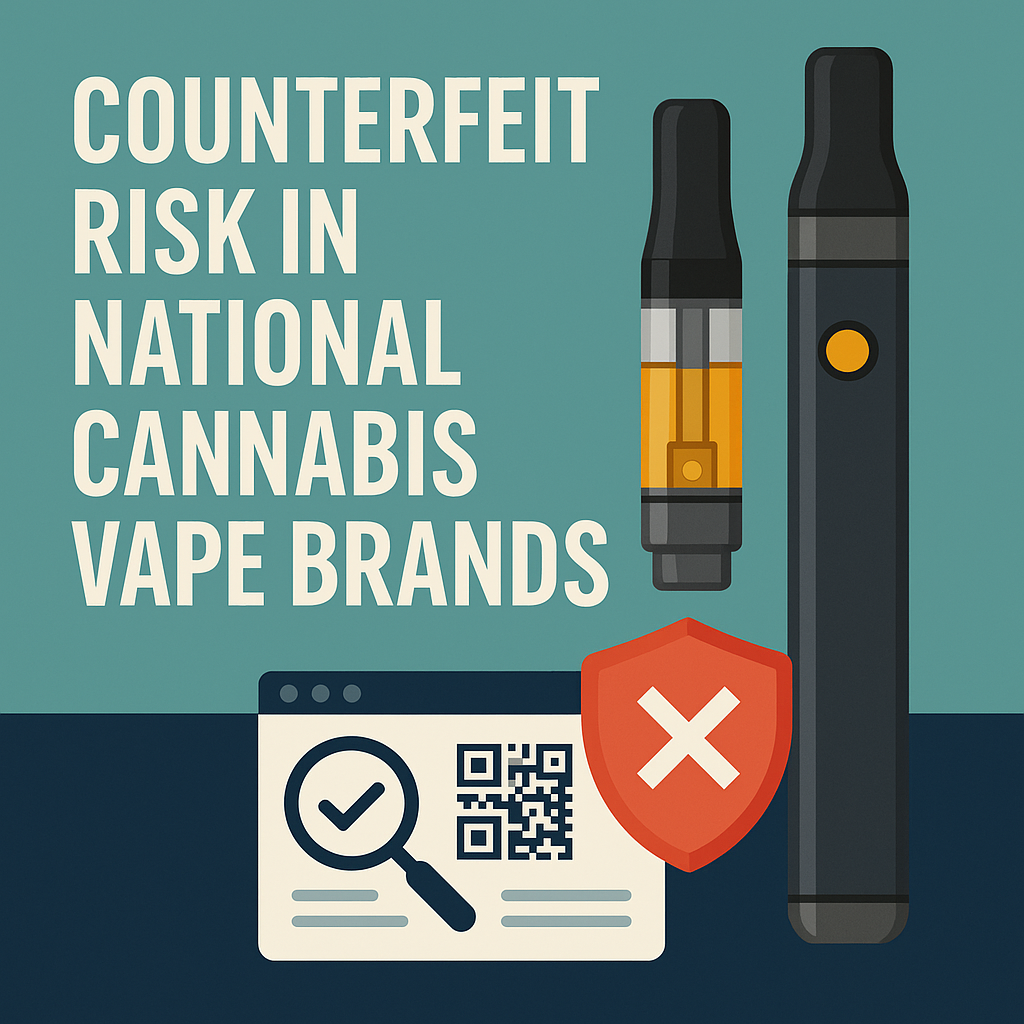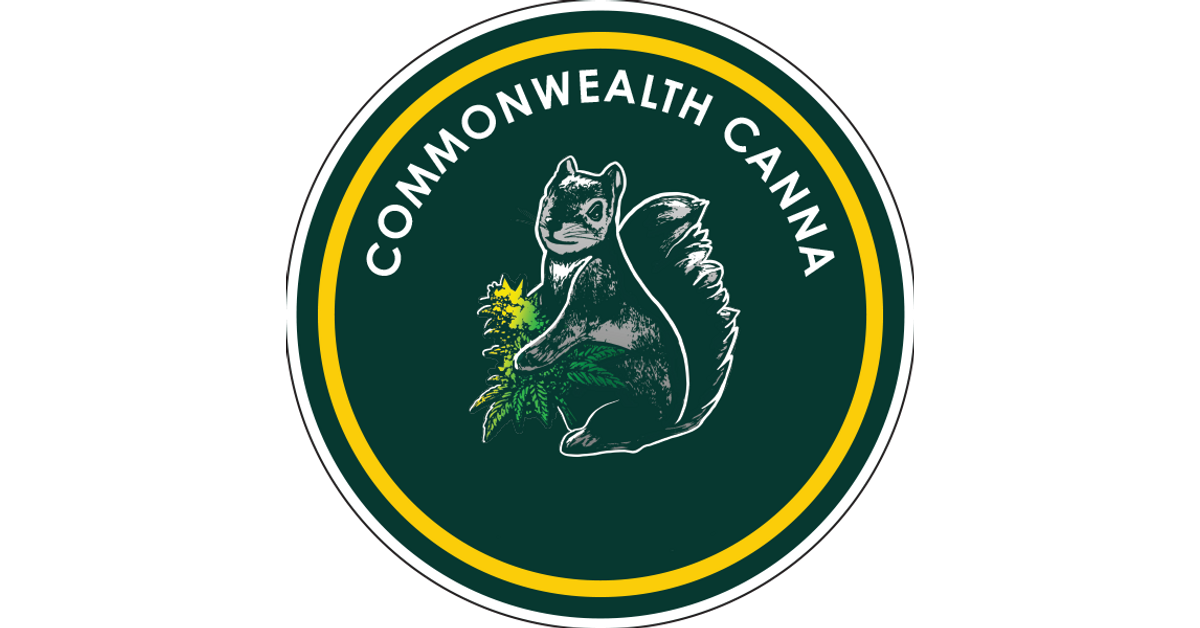As cannabis vaping becomes mainstream, consumers face an unexpected danger: counterfeit cannabis vapes that look exactly like major U.S. brands but are fake inside and out. These counterfeits often use fake verification codes, copied packaging, and even bogus verification websites designed to fool buyers into believing their product is authentic.
Laboratory testing of counterfeit cannabis vapes frequently finds a mismatch between what is printed on the label and what is actually inside, including unexpected or unlisted cannabinoids such as delta-8 and potent analogs like THC-P, as well as fully synthetic cannabinoids. Tests often reveal contaminants and residues from crude manufacturing, for example pesticides, heavy metals, and solvent residues, any of which can pose serious inhalation hazards.
Counterfeit cartridges are also commonly diluted with thinning agents to stretch product volume, including polyethylene glycol (PEG), vegetable glycerin (VG), medium-chain triglyceride oil (MCT oil), and propylene glycol, any of which can change vapor chemistry when heated. Vitamin E acetate has also been implicated in past lung-injury cases, and low-quality hardware or poor sealing can introduce metals and particulates. Because of these risks, emphasize that consumers should only trust cartridges with traceable, third-party lab certificates of analysis (COAs) from licensed manufacturers or dispensaries, and avoid products sourced through gray markets or unknown sellers.
What most people don’t realize is that the risk of buying a fake vape is far higher with semi-national or “big brand” products that are widely recognized and sold across state lines, compared to smaller, licensed local brands.
Why National Cannabis Vape Brands Are the Prime Target
Large or semi-national vape brands face a perfect storm for counterfeiting:
- High name recognition: The more famous a brand is, the more profit counterfeiters can make by copying it.
- Limited control over distribution: Major brands rely on networks of distributors and wholesalers, which makes it difficult to track every product’s source.
- Few direct-to-consumer options: Many national vape companies mainly sell directly to customers at limited locations, and at full retail price, which creates space for gray-market resellers to make and sell counterfeits.
- Packaging replication: Once packaging for a brand hits the market, counterfeiters can copy it almost perfectly, including QR codes and verification labels.
As one industry expert explains, counterfeiters often “replicate packaging almost immediately after a new design appears,” flooding online marketplaces with look-alikes that even experienced consumers struggle to identify as fake.
In contrast, local brands typically sell their products through licensed dispensaries, state-monitored systems, or direct-to-consumer delivery within their jurisdiction. Their smaller production and tighter distribution make them harder for counterfeiters to exploit.
Fake Verification Codes and Websites: How Counterfeiters Deceive Consumers
Counterfeit vape makers go beyond copying packaging. They also fake the systems designed to prove authenticity.
- Fake verification codes: Counterfeiters print random codes or reuse stolen ones from real packaging.
- Fake verification websites: These sites look identical to the brand’s official portal and always return a “valid” message, no matter what code you enter.
- Copied lab results: Some fake QR codes link to altered or reused lab reports showing “clean” test results for completely different products.
Why Local and Licensed Brands Are Safer
Choosing locally licensed cannabis vape brands helps reduce risk for several reasons:
- Direct traceability: Smaller producers operate under state “seed-to-sale” tracking. Products can be verified directly by the dispensary or manufacturer.
- Authentic verification portals: Local brands typically manage a single official verification site tied to their license, making fake versions easier to spot.
- Shorter supply chain: Local brands often sell directly to dispensaries without middlemen, reducing opportunities for counterfeiters to infiltrate the pipeline.
- Easier accountability: If there’s an issue, you can contact the manufacturer or dispensary directly, not a distributor or reseller halfway across the country.
- Community support: Buying local supports small businesses, cultivators, and extractors working within your state’s legal framework.
Simply put: local equals verifiable.
How to Spot Counterfeit Cannabis Vape Products
Even when buying local, it pays to stay alert. Warning signs of counterfeits include:
- Price too low: If a national brand product is heavily discounted, it’s likely fake.
- Suspicious verification sites: Check the domain carefully — real brand sites use secure “https://” links and the brand’s true name.
- Inconsistent packaging: Fuzzy print, missing batch numbers, or a QR code that looks reused are classic red flags.
- Generic flavor names: Counterfeiters often use flavors that can be packaged in multiple brands and still reflect the flavor on the label.
If the QR code links to a website that doesn’t include batch data, testing results, or license information, assume the product is counterfeit.
How Consumers Can Protect Themselves
- Buy from known sources only. Avoid street markets, social media sellers, or unverified online shops.
- Favor local brands with clear traceability and transparent lab results.
- Confirm the verification domain on the brand’s official site, not through a reseller.
A good rule of thumb: if a product claims to be from a national cannabis vape brand but wasn’t purchased directly from that company or a licensed retailer, assume it’s counterfeit until proven otherwise.
Conclusion: Keep It Local, Keep It Safe
The rise of counterfeit cannabis vapes shows how the black market exploits national brand recognition. Big-name cartridges are easy targets for replication, and their complex distribution makes verification nearly impossible for consumers.
By contrast, local licensed brands maintain tighter control, smaller batches, and verifiable sales channels. Supporting them not only protects your health and wallet but also strengthens the legal cannabis community in your state.
So the next time you shop for vape cartridges, remember:
It’s not just about what might be in the cart – it’s about who made it, where it came from, and whether you can verify it.
Trust local. Verify smart. Vape safe.




